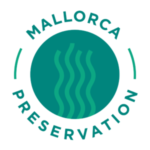
News
23 May 2024
Mediterranean Forum
On the 22nd of May, the Mediterranean Forum, organised by Prensa Ibérica, focused on sustainability and tourismin the face of climate change. The event was inaugurated with a keynote speech by Antoni Riera, Professor of Applied Economics and Director of the Fundación Impulsa, who provided a comprehensive overview of the challenges posed by climate change. Riera also outlined some of the key conclusions from the final report of the series.
The round table, titled "Regeneration and Public-Private Collaboration," was moderated by Cristina Martín, director of Diario de Ibiza. This panel discussed the synergies necessary to promote sustainable tourism and featured prominent speakers: Mariano Juan Colomar, First Vice-President and Minister of Territory, Tourism Planning, Mobility, Road Infrastructures, and Fight against Intrusiveness; Marcial Rodríguez, Tourism Councillor of the Consell de Mallorca; Álvaro Sánchez, Director of Product Sustainability at Iberostar; and Irene Wagner, Project Manager of Mallorca Preservation.
During her speech, Irene Wagner highlighted several crucial points. Firstly, she emphasised that the Mediterranean is facing significant physical changes due to climate change, directly impacting the tourism sector, a vital economic driver for the region. Despite growing awareness of this issue, Wagner noted that coordination between sectors still presents significant challenges.
Regarding the integrative and systemic approach between tourism, society, and the environment, Wagner stated that significant progress has been made. We have moved from responsible tourism in the 1980s to regenerative tourismtoday, which not only avoids damage but actively improves the natural environment. Nevertheless, tourism pressure continues to increase, requiring concrete actions and effective tools to achieve a truly positive impact.
On public-private collaboration, Wagner stressed its essentiality to address the challenges of climate change in tourism. Although progress has been made, much remains to be done in terms of monitoring and adapting tourism activities to the impact of climate change. The foundations for this collaboration are established, but continuous and coordinated commitment is needed.
Concerning the global strategic vision, Wagner highlighted the need for long-term planning with shared objectives and public-private partnerships. The current situation demands that all stakeholders align and work together, overcoming individual interests for the common good. Long-term planning is feasible as long as there is leadership and commitment from the administration, involving the private sector and the third sector.
Wagner also spoke about the importance of rethinking the interrelationship between the economy, society, and the environment. Regenerative tourism can achieve environmental, economic, and social objectives. In a mature destination like Mallorca, the tourism model must be reconsidered to effectively integrate these objectives, offering opportunities and tools that promote positive impact tourism, addressing the growing demand from tourists for sustainable options.
Tourism is a significant consumer of resources in the Mediterranean, such as water and energy. To address these issues, measures such as investments in the water cycle and renewable energies are being taken, with proper planning to avoid negative environmental impacts.
Finally, Wagner proposed an immediate roadmap to tackle these challenges. The priority is the use of reclaimed water to compensate for tourist consumption and meet agricultural needs exacerbated by climate change. It is also necessary to assess the fleet of rental cars in Mallorca, considering limiting its size according to the island's carrying capacity and existing infrastructure.
News in Related Press:
Esta web utiliza cookies para analítica digital, mejorar su experiencia de usuario y personalización de publicidad. Puede consultar nuestra política de cookies aquí.
